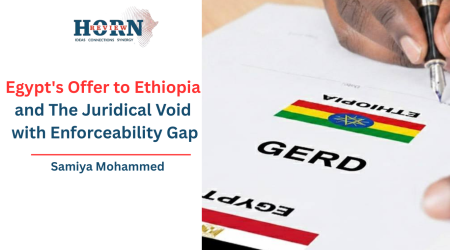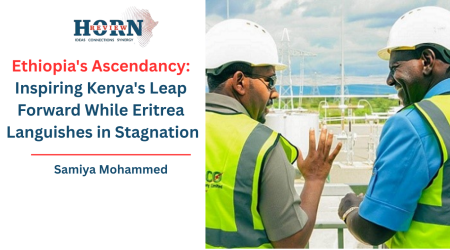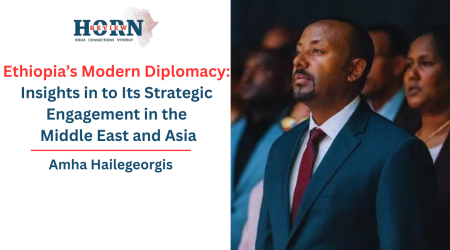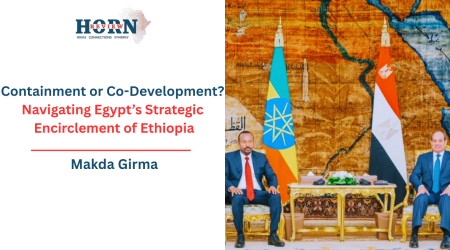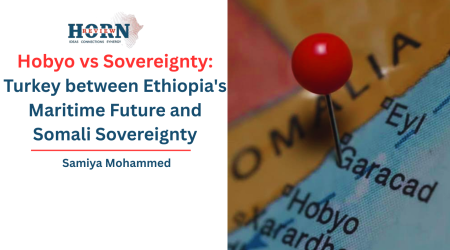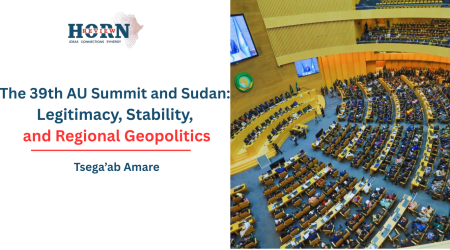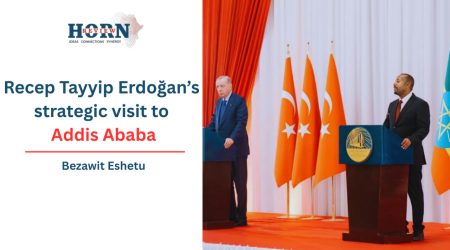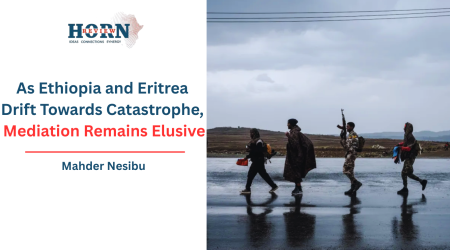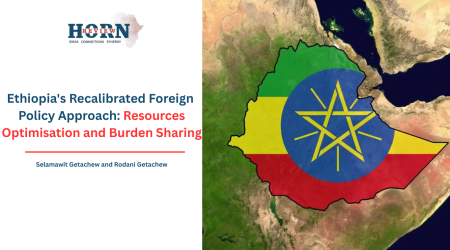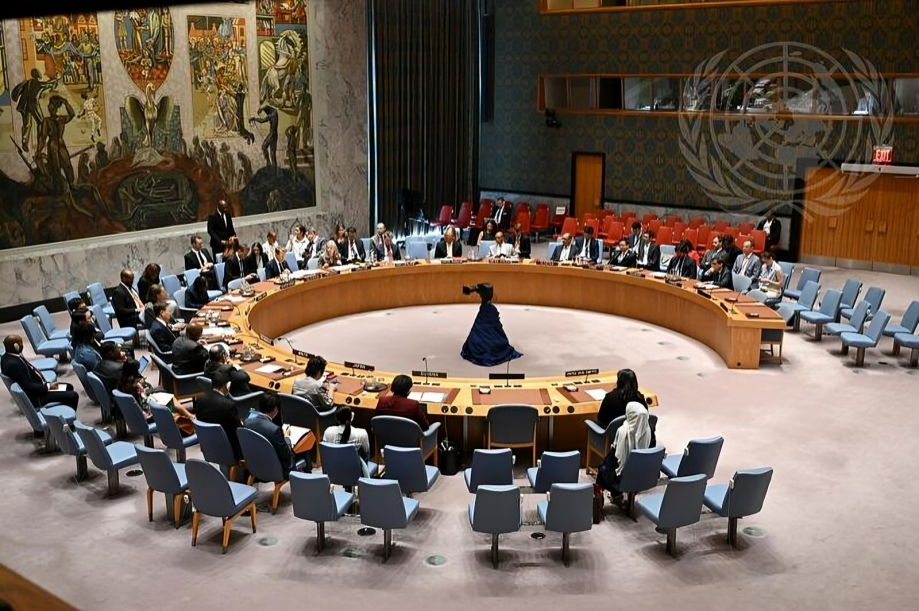
12
Sep
GERD Post-Inauguration Politics At The UN Security Council
On September 9, Egypt submitted a formal letter to the United Nations Security Council regarding the Grand Ethiopian Renaissance Dam (GERD), once again placing the long-running dispute over the Nile River at the centre of international attention. In his letter, Egyptian Foreign Minister Badr Abdelatty described the GERD as a unilateral measure that lacked legitimacy. He accused Ethiopia of engaging in “attempts to give it a false veneer of acceptance and legitimacy,” and reminded the Security Council president that no binding bilateral arrangement currently governs Nile Basin issues. For Cairo, Ethiopia’s insistence on completing and operating the dam was not a developmental undertaking, but rather, as Abdelatty argued, a “political agenda”. He declared that Egypt would “not allow” what it perceives as “Ethiopian efforts to unilaterally dominate the management of the water resources.”
The timing of Egypt’s démarche was no coincidence. It coincided precisely with Ethiopia’s completion and inauguration of the GERD on the same day, September 9, a moment Addis Ababa celebrated as a national triumph and a landmark in its modern history.
Just two days later, on September 11, Ethiopia issued its own response. In a letter addressed to the Security Council, Ethiopia’s Foreign Minister rejected Cairo’s accusations. He framed the inauguration as a historic milestone and described the event as the “fulfilment of a generational aspiration” and a reflection of Ethiopia’s determination “to use the river Abbay to attain development and prosperity.”
The Ethiopian letter carried particular weight because it pointed to the international and regional leaders who had attended the inauguration ceremony. Heads of state from Somalia, Kenya, South Sudan, and Djibouti were present, with Kenya and South Sudan notably being Nile Basin countries. Also in attendance were the chairperson of the African Union (AU) and the head of IGAD. These leaders, as the Ethiopian minister emphasized, congratulated Ethiopians and acknowledged the collective nature of the dam’s benefits, which extend beyond Ethiopia’s borders. Their presence underlined Ethiopia’s argument that the GERD is not merely a national project but one of regional and even continental significance.
The Ethiopian minister then directly challenged the accusations raised by his Egyptian counterpart. He argued that the filling process of the dam had taken place in accordance with the 2015 agreement signed by the parties. Moreover, he accused Egypt of demonstrating a persistent “lack of reciprocity” and an “unbridled desire to monopolize the waters of the Nile River.” Cairo’s consistent opposition to basin-wide agreements, particularly the Nile Basin Cooperative Framework Agreement (CFA), was cited as evidence of this monopolistic intent.
At the heart of his argument was a rejection of what he called Egypt’s “supremacy and hegemony,” rooted in claims to “historical rights” over the river. He condemned this as a “colonial mindset” that disregards the sovereignty and aspirations of upstream states. Ethiopia’s stance, by contrast, reflects a call for equity and cooperation in the use of shared resources.
The Ethiopian minister further sought to dismantle Egypt’s narrative of existential dependence on the Nile. He highlighted Egypt’s vast reserves of groundwater, its wasteful patterns of water consumption, and what he described as the unsustainable development of cities and unlawful out-of-basin water transfers. These factors, he argued, reveal the disparity between Egypt’s abundant water resources and Ethiopia’s far more constrained position. Against this backdrop, Ethiopia reiterated its longstanding call for Egypt to join the CFA rather than undermining it and preventing its operationalization.
Ethiopia also criticized Egypt’s appeal for an advisory opinion from the International Court of Justice, noting Cairo’s own reliance on outdated colonial-era arrangements that exclude upstream states. In strong language, the Ethiopian minister accused Egypt of showing “contempt for the dignity of the people of Sub-Saharan African countries” by attempting to restrict their ability to use their own natural resources.
The Ethiopian letter did not stop there. It also drew attention to Egypt’s broader foreign policy, which Addis Ababa described as a “well-documented effort to destabilize Ethiopia and the wider Horn of Africa”. By linking the GERD dispute to Cairo’s regional activities, Ethiopia cast the dam as both a development project and a symbol of sovereignty and resistance to external interference.
This exchange of letters marks a new chapter in the dispute over the GERD and the wider Nile Basin question. The dam is now complete, and with Ethiopia holding firm to what it considers its legitimate rights to utilize its waters, the political and diplomatic battle shows no sign of subsiding. Egypt, by contrast, has intensified its diplomatic manoeuvres to secure an agreement that preserves its long-standing privileges.
The inauguration event itself reflected Ethiopia’s growing ability to build understanding, if not outright support, among its neighbours and riparian states. The attendance of regional leaders signalled a degree of acceptance, or at least recognition, of Ethiopia’s accomplishment. Yet, the alignment of Egypt and Sudan remained intact. Earlier in the month, both countries issued a joint statement condemning Ethiopia for what they continued to describe as unilateral actions—an accusation Addis Ababa maintains is unfounded given the commitments it has already observed.
The geopolitical significance of the GERD is therefore immense. Egypt has yet to accept the altered reality of the basin and has deployed an extensive foreign policy strategy aimed at constraining Ethiopia. Meanwhile, Addis Ababa has already begun to speak of “more projects” on its water resources, a prospect that only heightens Egyptian anxieties about the future balance of power over the Nile.
The division between upstream and downstream states continues to define the battlefield. Egypt seeks to rally downstream partners, particularly Sudan, to its position, while Ethiopia aspires to spearhead a broader coalition of upstream and Sub-Saharan states committed to overturning what they regard as colonial-era and fundamentally unfair arrangements. For Addis Ababa, the GERD represents a decisive instrument for reconfiguring the politics of the Nile Basin and for challenging entrenched hierarchies.
This struggle extends beyond the basin itself. Ethiopia and Egypt are engaged in a broader geopolitical confrontation, with Cairo’s activities in the Horn of Africa adding another dimension to the rivalry. In Addis Ababa’s view, Egyptian interference in the Horn is a continuation of its broader attempt to limit Ethiopia’s sovereignty and regional influence.
The multilateral dimension also remains critical. The presence of the AU chairperson at the inauguration displayed Ethiopia’s preference for African-led mechanisms, while Egypt’s repeated appeals to international institutions such as the UN Security Council and the ICJ highlight its reliance on global intervention. The contest is thus framed not only as a question of water but as a struggle over whose framework—continental or international—should govern African disputes.
What emerges from this episode is the sharpening of two fundamentally different positions. Ethiopia insists on its sovereign right to develop and to utilize its natural resources equitably, pointing to regional support as evidence that its approach carries legitimacy and momentum. Egypt, for its part, clings to its established privileges and deploys all available diplomatic, regional, and international tools to protect them.
The GERD has always stood as more than an infrastructure project. It has become a symbol of sovereignty, of competing visions for regional order, and of the struggle between colonial legacies and new aspirations. With the dam complete, the diplomatic contest is entering a more complex phase—one that will test not only the resilience of Ethiopia and Egypt but also the capacity of African and international institutions to manage one of the continent’s most consequential disputes.
By Mahder Nesibu, Researcher, Horn Review

